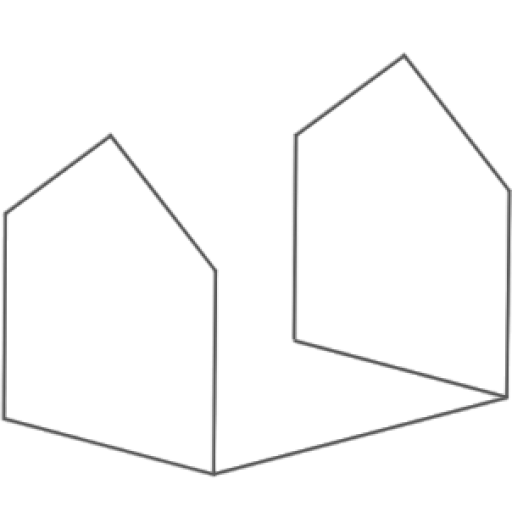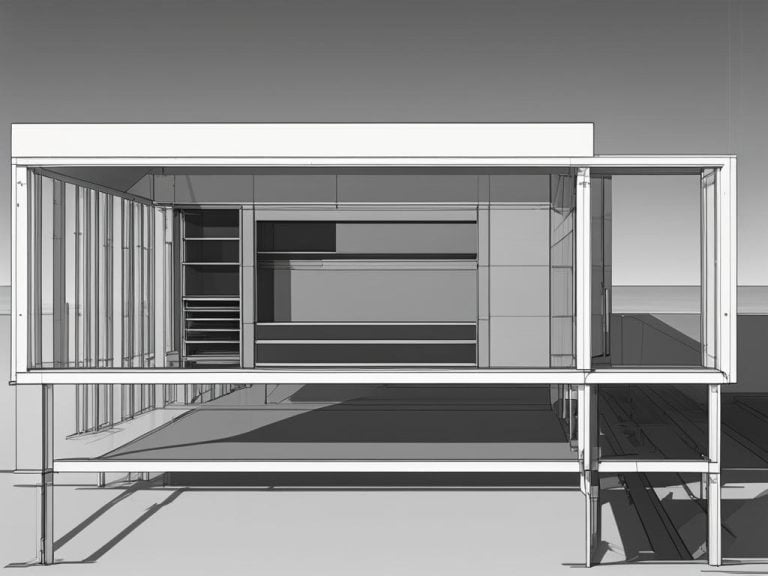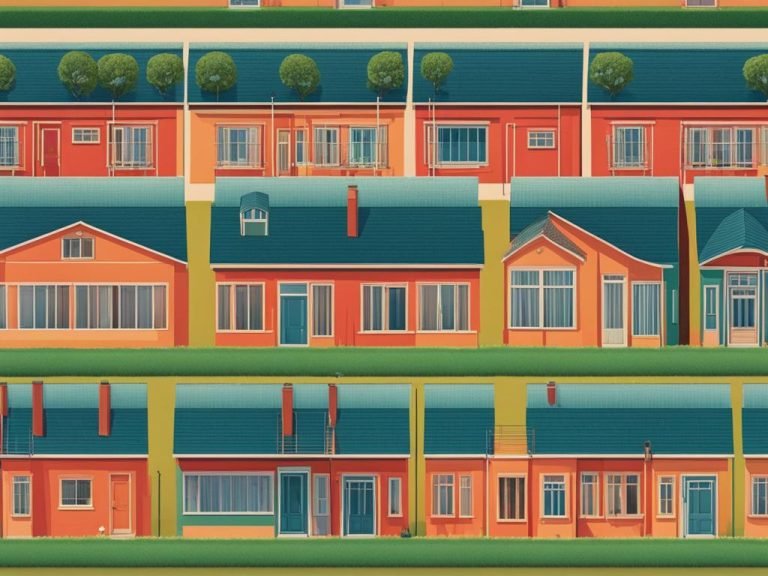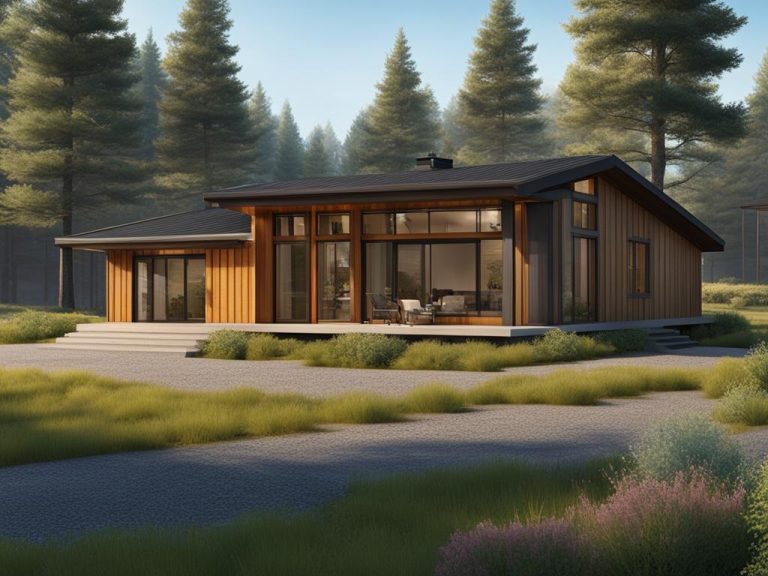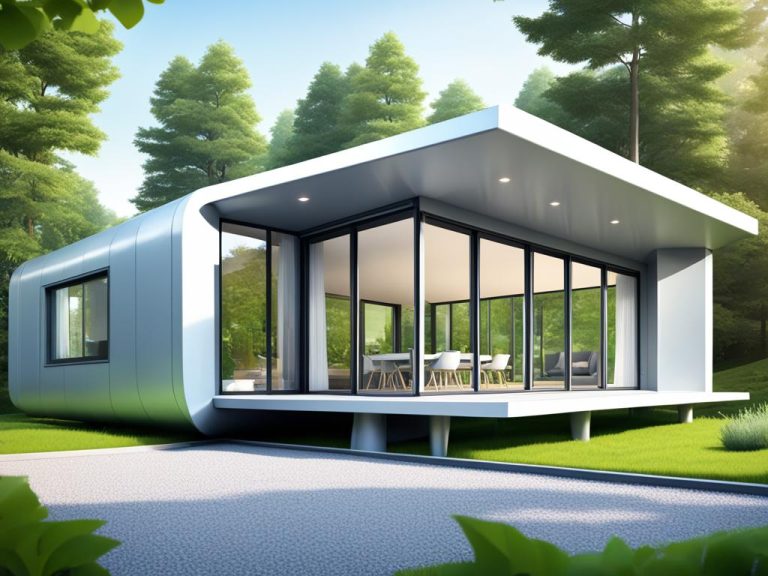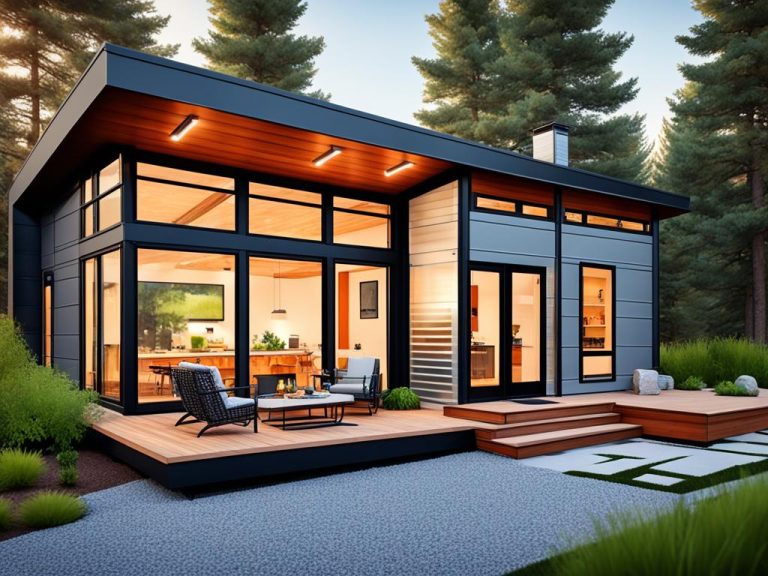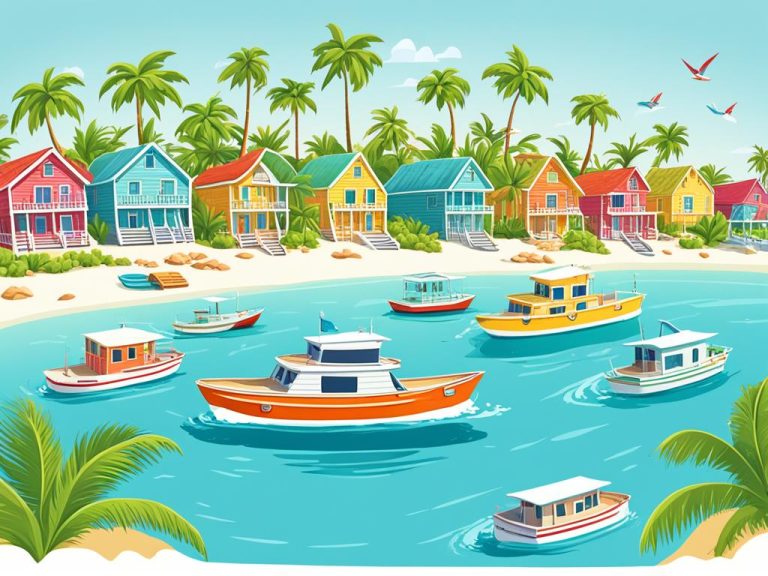Is it easy to build a Modular Vacation Home?
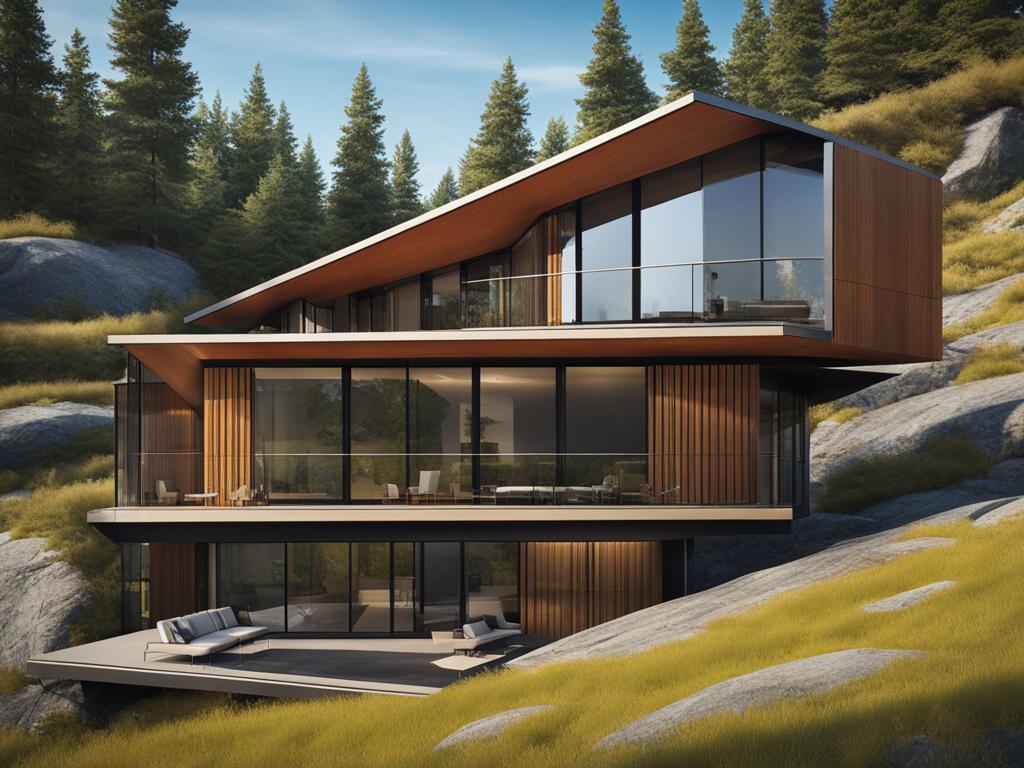
Building a modular vacation home offers a simple and hassle-free process. From the initial feasibility study to the completion and aftercare, the process is carefully planned and executed to ensure a stress-free experience. The Wee House Company, for example, follows a step-by-step guide that includes concept design, quotation, planning consent, customization, building warrant, factory build, site build, and completion & aftercare.
Key Takeaways:
- Modular vacation homes provide an easy and stress-free construction process.
- The Wee House Company offers a step-by-step guide for building modular vacation homes.
- Feasibility study, concept design, and planning consent are important steps in building a modular vacation home.
- Customization options are available to tailor the vacation home to personal preferences.
- Aftercare and support are provided by The Wee House Company for a seamless experience.
The Modular Build Process
The modular build process involves several steps that ensure a successful construction. Whether you’re looking to build a vacation home or a permanent residence, understanding the building steps is essential. By following a systematic approach, you can achieve a well-designed and customised modular home that meets your exact requirements.
The first step in the modular build process is the feasibility study. This involves assessing the plot of land where the home will be constructed. Factors such as access, utilities, and site conditions are evaluated to determine if the location is suitable for building a modular home.
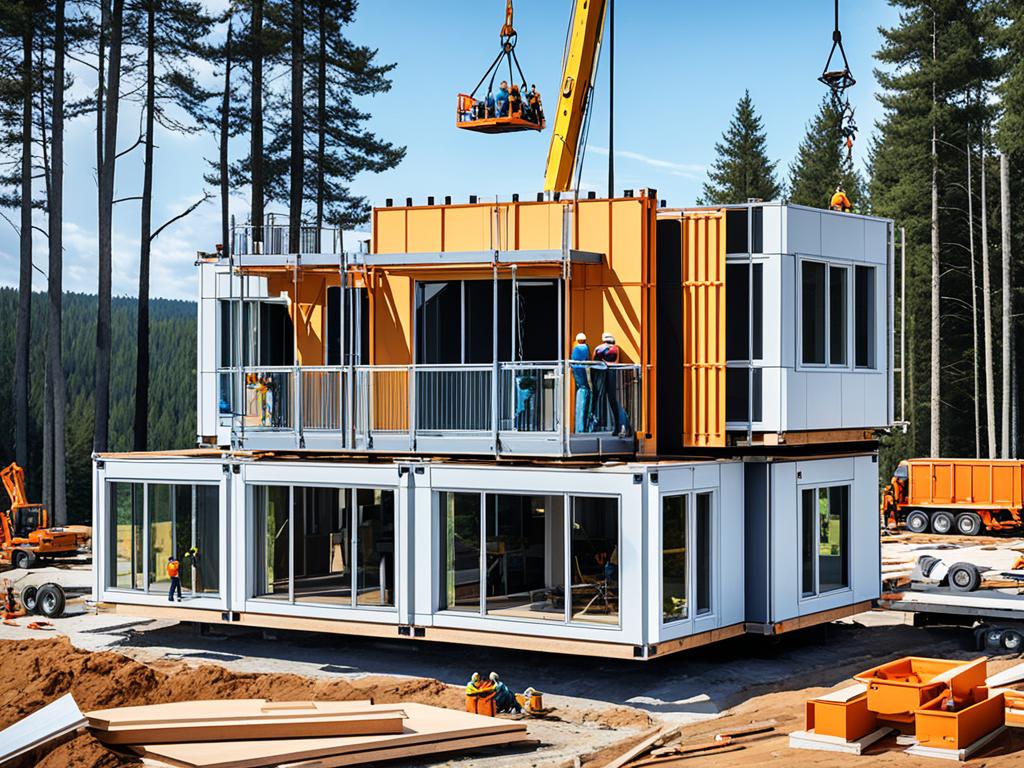
Once the feasibility study is complete, the next step is concept design. This is where your vision for your dream home begins to take shape. Working closely with architects and designers, you can customise the layout, size, and features of your modular home to suit your lifestyle and preferences.
After the concept design, the next step is obtaining a quotation. This provides you with upfront cost details, allowing you to plan your budget accordingly. The Wee House Company, for instance, provides transparent and competitive pricing to ensure you have a clear understanding of the investment required for your modular home.
Once you have chosen the design and received a quotation, the next crucial step is obtaining planning consent. This involves obtaining the necessary permits and approvals from the local planning authority. The Wee House Company has extensive experience in navigating the planning process, ensuring a smooth and efficient approval for your modular home.
Finally, the last step in the modular build process is customisation. This allows you to add your personal touch to the design, choosing from a wide range of finishes and fixtures to make your modular home truly unique. From selecting the flooring and paint colors to choosing the kitchen cabinets and bathroom tiles, customisation options abound.
By following these building steps – feasibility study, concept design, quotation, planning consent, and customisation – you can ensure that the construction of your modular home proceeds smoothly and seamlessly. The Wee House Company takes care of these steps, providing a streamlined and personalised experience every step of the way.
Advantages of Modular Vacation Homes
Modular vacation homes offer numerous advantages. These homes are designed to provide a quick and efficient solution for those seeking a cost-effective and energy-efficient living space. Here are some of the key benefits:
1. Quick Assembly
Modular homes are known for their quick assembly process. Unlike traditional homes, which can take months or even years to build, modular vacation homes can be constructed in a matter of weeks. The pre-manufactured modules are constructed off-site, allowing for faster assembly and reduced construction time. This means you can start enjoying your new vacation home sooner.
2. Cost-Effective
Modular vacation homes are cost-effective in multiple ways. First, the automated manufacturing process used to produce modular homes allows for mass production, resulting in lower costs compared to traditional construction methods. Additionally, the shorter construction time translates to fewer labor hours and reduced expenses. Therefore, modular homes provide an affordable option for those looking to invest in a vacation property.
3. Energy-Efficient
Modular homes are designed with energy efficiency in mind. They meet high standards of insulation and energy performance, ensuring optimal energy conservation. The Wee House Company, for example, incorporates sustainable and eco-friendly features into their modular vacation homes. By choosing a modular vacation home, you can benefit from reduced energy consumption, lower utility bills, and a smaller carbon footprint.
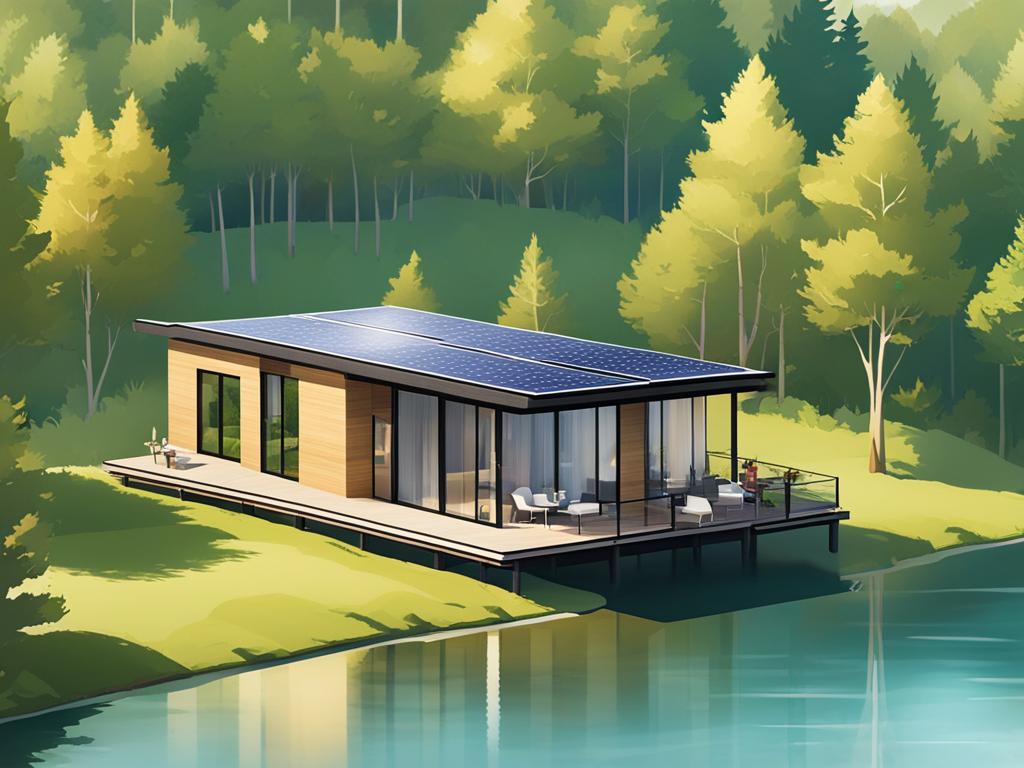
With their quick assembly, cost-effectiveness, and energy efficiency, modular vacation homes offer a compelling option for those seeking a comfortable and eco-conscious living space.
Disadvantages of Modular Vacation Homes
While modular vacation homes offer many benefits, it’s important to consider their limitations. Here are a few factors to keep in mind:
- Customisation limitations: Compared to conventional homes, modular vacation homes may have limited customisation options. This is because they are built using pre-manufactured modules, which may restrict the level of personalisation you can achieve.
- Maintenance and repair complexity: Due to their specific construction methods, maintenance and repair of modular vacation homes may be more complex compared to traditional homes. It is essential to understand the unique aspects of modular construction to ensure effective upkeep.
- Resale value uncertainty: Potential buyers may be relatively unfamiliar with modular homes, which can impact their perception of resale value. However, as modular construction gains popularity, homeowners may have more options and better resale value in the future.
Despite these considerations, modular vacation homes remain a viable and practical option for your holiday living needs. Their quick assembly, cost-effectiveness, and energy efficiency make them an attractive choice. Whether you are looking for a sustainable holiday home or an eco-friendly retreat, modular homes can provide a comfortable and environmentally conscious solution.
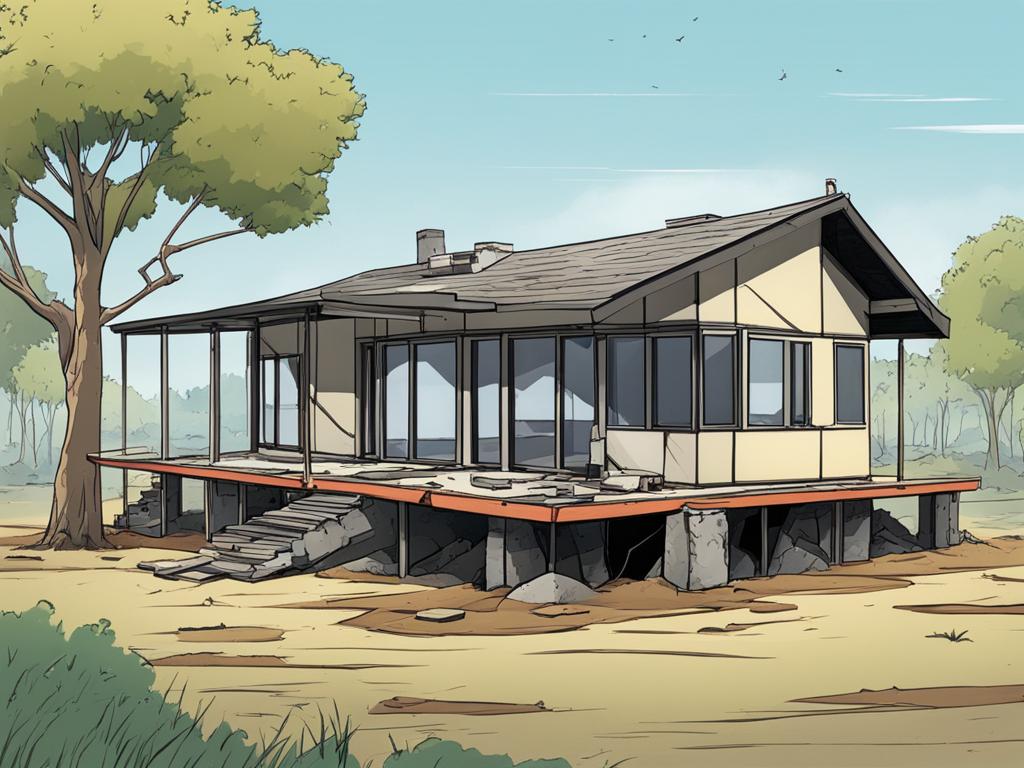
Quality and Comparisons to Conventional Homes
Modular vacation homes are constructed to meet high standards of quality and design. They are built using the same building materials as conventional homes and adhere to the same building regulations. This ensures that modular homes provide the same level of structural integrity and durability as traditional homes.
During the manufacturing process, modular homes undergo rigorous quality control measures to ensure that they meet the desired standards. This includes thorough inspections of each module to identify and rectify any defects or snags before the home is completed. As a result, homeowners can expect fewer issues and a higher level of quality in their finished modular vacation homes.
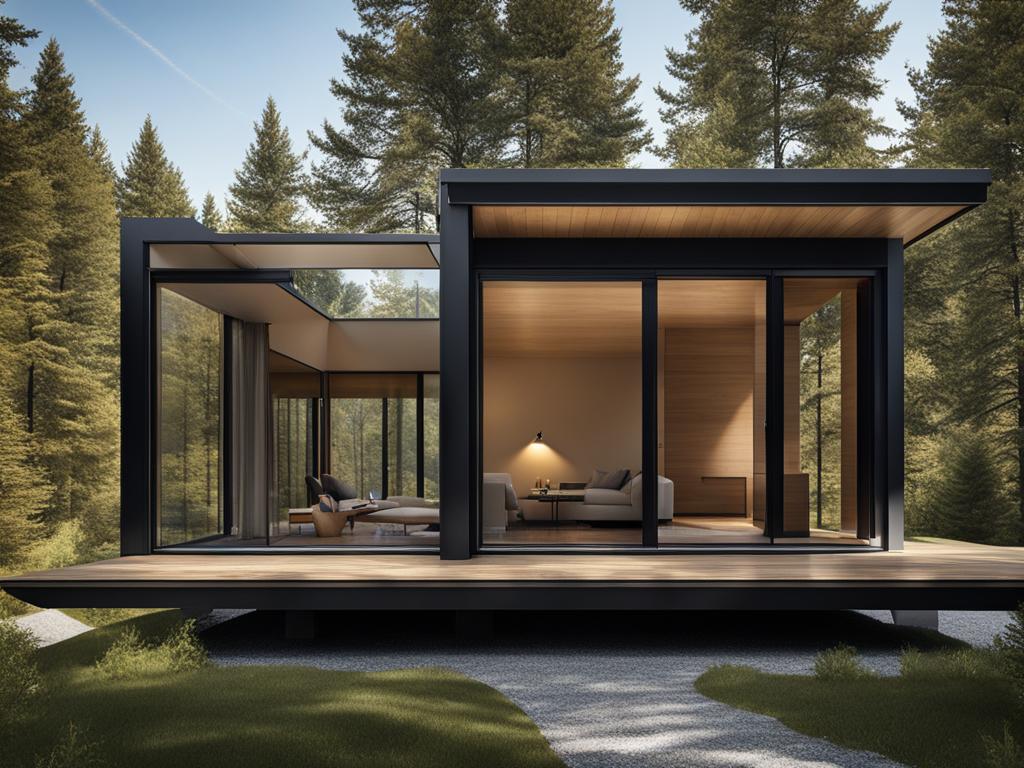
The Wee House Company, a leader in modular construction, maintains the highest standards of quality in their homes. They are committed to using premium building materials and employing skilled craftsmen to ensure that every aspect of their modular homes meets or exceeds industry standards. The attention to detail in design and construction is evident in the finished product, providing homeowners with peace of mind and a quality living environment.
Differentiating Modular and Mobile Homes
When considering the options for your new home, it’s important to understand the differences between modular homes and mobile homes. While both offer unique benefits, they serve different purposes and have distinct characteristics.
Modular Homes:
Modular homes are permanent buildings that cannot be moved to another location once assembled on-site. They are constructed using pre-manufactured modules that are transported and assembled on a foundation at the desired location. Modular homes offer the same level of quality and permanence as conventional homes, providing a stable and durable living solution. By incorporating modern construction techniques and high-quality materials, modular homes are designed to last for many years, ensuring long-term comfort and security.
Mobile Homes:
Mobile homes, also known as manufactured homes, are designed to be transportable dwellings. They are typically built in a factory and then transported to a designated site using wheels or a trailer. Mobile homes are often used as temporary or seasonal housing solutions, and they can be relocated to different areas. While mobile homes offer flexibility and affordability, they may not provide the same level of durability and permanence as modular or conventional homes. It’s important to consider the intended use and long-term plans for your home before deciding between a mobile or modular option.
As you explore your housing options, take into account your lifestyle, budget, and long-term goals. Whether you choose a modular or mobile home, both can provide comfortable living spaces tailored to your needs. Consider consulting with reputable home builders, such as The Wee House Company, who specialize in modular construction and can guide you through the process of creating your dream home.
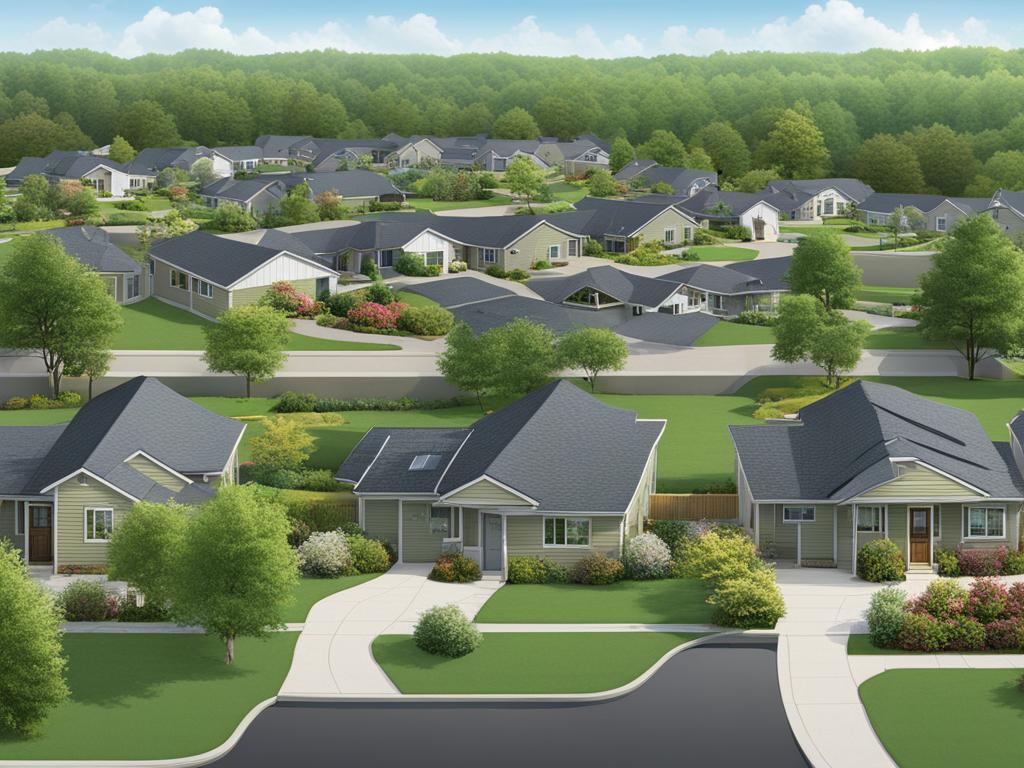
Conclusion
Building a modular vacation home provides a hassle-free and efficient construction experience. The ease of construction, along with the benefits of quick assembly, cost-effectiveness, energy efficiency, and high-quality design, make modular homes an attractive choice for vacation living. While there are limitations regarding customisation and maintenance, modular homes offer a practical and viable solution.
By embracing modular architecture, homeowners can create sustainable and eco-friendly vacation homes. The modular construction process ensures a streamlined and well-planned approach from start to finish, ensuring a stress-free experience for the homeowners.
Modular vacation homes offer a versatile and convenient way to build vacation properties. With their ease of construction and numerous benefits, modular homes are becoming increasingly popular. From their quick assembly to their energy-efficient design, these homes provide an excellent solution for those seeking a comfortable and environmentally-conscious vacation living experience.
FAQ
Is it easy to build a Modular Vacation Home?
Building a modular vacation home offers a simple and hassle-free process. From the initial feasibility study to the completion and aftercare, the process is carefully planned and executed to ensure a stress-free experience.
What is the modular build process?
The modular build process involves several steps that ensure a successful construction. This includes a feasibility study to assess the plot, concept design to tailor the home to the owner’s needs, quotation to provide upfront cost details, planning consent to obtain the necessary permits, and customisation to choose personal styles.
What are the advantages of modular vacation homes?
Modular vacation homes offer numerous advantages. They are quicker to build than conventional homes, cost-effective, and energy-efficient, meeting high standards of insulation and energy performance. They are also sustainable and eco-friendly, offering a comfortable and eco-conscious living solution.
What are the disadvantages of modular vacation homes?
While modular vacation homes have many benefits, there are some limitations to consider. Customisation options may be limited compared to conventional homes, and maintenance and repair may be more complex. Resale value may also vary, as potential buyers may be unfamiliar with modular homes. However, modular homes are still a viable and practical option for vacation living.
Are modular vacation homes of high quality?
Modular vacation homes are built to high standards of quality and design. They are constructed using the same building materials as conventional homes and meet the same building regulations. Additionally, modular homes undergo rigorous quality control during the manufacturing process, resulting in fewer defects or snags once completed.
What is the difference between modular and mobile homes?
Modular homes should not be confused with mobile homes or park homes. While mobile homes are designed to be movable dwellings, modular homes are permanent buildings that cannot be moved to another location once assembled on-site. Modular homes offer the same level of quality and permanence as conventional homes, providing a stable and durable living solution.
Why should I consider building a modular vacation home?
Building a modular vacation home offers a straightforward and efficient construction process. The advantages of quick assembly, cost-effectiveness, energy efficiency, and high-quality design make modular homes an appealing choice. Although there are limitations in terms of customisation and maintenance, modular homes provide a viable and practical solution for vacation living. Embracing modular architecture can lead to the creation of sustainable and eco-friendly vacation homes.
